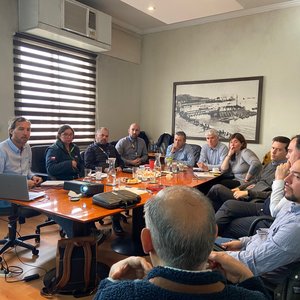The World Wildlife Fund (WWF) has raised concerns about proposed fish feed standards released by the Aquaculture Stewardship Council (ASC).
In public comments, WWF, a founding member of the ASC and the Marine Stewardship Council (MSC), urged ASC to strengthen its proposed criteria for fish feed and to require feed manufacturers to source wild fish from fisheries certified by the MSC.
“ASC has established the most credible and effective standards to ensure that aquaculture is environmentally and socially responsible,” said Dr Aaron McNevin, director of aquaculture for WWF’s Sustainable Food programme. “With its draft feed standard, ASC has a significant opportunity to improve the way it measures and manages the environmental impacts of feed. ASC should reaffirm its support for MSC certified feed in order to protect wild fish stocks.”
According to a World Bank report, approximately one-fifth of all fish harvested from the oceans is used to produce fish meal and oil, most of which—about 60 percent of fish meal and 80 percent of oil—are fed to farmed fish.
When they were released starting in 2009, the farm-level ASC standards for salmon, shrimp, tilapia, abalone, trout and pangasius required that all marine ingredients in feed be sourced from MSC certified fisheries within five years of ASC certification. In the current draft standard, ASC would allow farms another 10 years to meet this requirement.
“By requiring reduction fisheries to be MSC certified, ASC can most effectively protect biodiversity in our oceans. Feed companies and the aquaculture industry have had five years to build a sustainable, MSC certified supply of marine feed ingredients. It’s time for progress, not further delay. We can’t kick this can down the road any longer,” said Dr McNevin.
WWF also advised ASC to work with agriculture experts and those involved in other commodity roundtables to ensure credible criteria are developed for soy, corn, palm oil and other terrestrial crops used in feed.










